Meet the Visionary Minds Shaping Our Future Direction
Together, we pave the way for a safer, more secure future, inspired by the core values that define us. Join us in meeting the trailblazers who shape the future of public safety at The Knowledge Lab.
Shon F. Barnes, Chief of Police, Seattle Police Department
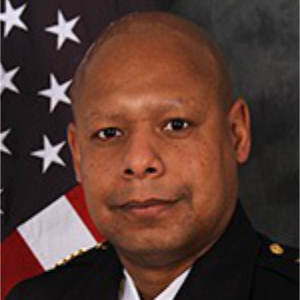
Shon F. Barnes, Ph.D., was appointed Chief of Police for the Seattle Police Department in January 2025. Prior to this role, he served as Chief of Police for the Madison Police Department in Wisconsin from 2021 to 2024. Chief Barnes is a nationally recognized leader in crime reduction and community-police relations. His previous roles include Director of Training and Professional Development at the Civilian Office of Police Accountability in Chicago, Illinois, and Deputy Chief of Police in Salisbury, North Carolina, from 2017 to 2020. He began his law enforcement career with the Greensboro Police Department in North Carolina, where he rose through the ranks from patrol officer in 2000 to the rank of Captain.
Chief Barnes was honored as a National Institute of Justice LEADS Scholar for his use of innovative technology to reduce crime. He currently serves as a council member on the National Policing Institute’s Council on Policing Reforms and Race—an independent, nonpartisan initiative that leverages research and evidence to address critical issues in policing. In 2024, he was inducted into the George Mason University Center for Evidence-Based Crime Policy’s “Policing Hall of Fame” and received the “Excellence in Policing” Award from the Center for Police Practice, Policy, and Research at Radford University.
A lifelong advocate of Neighborhood Oriented Policing, Chief Barnes promotes smaller beat assignments, officer ownership of neighborhood outcomes, and meaningful community engagement at every level of the organization.
Chief Barnes holds a B.A. in History/Pre-Law from Elizabeth City State University, an M.S. in Criminal Justice from the University of Cincinnati, and a Ph.D. in Leadership Studies from North Carolina A&T State University.

Shon F. Barnes
Rebecca Boatright, Senior Counsel, Baker Sterchi Cowden & Rice, LLC

Rebecca Boatright is Senior Counsel at Baker Sterchi Cowden & Rice, LLC, where she focuses on advising public sector entities on risk management and legal strategy. Previously, she served as General Counsel for the Seattle Police Department, providing legal, strategic, and risk management support, and prior to that, as a supervising Assistant City Attorney for the City of Seattle.
Becca earned her undergraduate degree from The College of Wooster and holds both a Ph.D. (1999) and a J.D. (2002) from the University of Washington. She has completed executive leadership training in driving government performance at the University of Washington and Harvard University’s Kennedy School of Government and is a 2018 graduate of the Police Executive Research Forum's Senior Management Institute for Police.
In addition to her work with the Knowledge Lab, she is a member of the Board of Advisors to the National Association of Professional Staff in Public Safety.

Rebecca Boatright
Christine M. Cole, Consultant
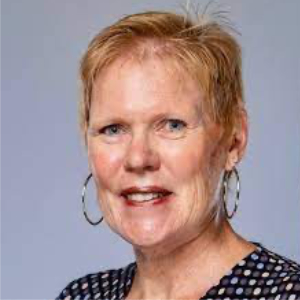
Christine M. Cole is a self-employed criminal justice consultant and Senior Advisor at 21CP Solutions. She previously served as Executive Director and Vice President at the Crime and Justice Institute (CJI), a division of Community Resources for Justice (CRJ), where she led the organization for eight years.
During her tenure at CJI, Christine managed $7.8 million in research and technical assistance projects and oversaw a team of over 50 staff. Under her leadership, the organization worked across more than three dozen states to enhance public safety and justice, reduce reliance on incarceration, and implement cost-effective, evidence-based practices.
Before joining CJI, Christine served as Executive Director of the Program in Criminal Justice Policy and Management at Harvard Kennedy School. From 2008 to 2014, she co-chaired and facilitated the NIJ-funded Executive Session on Policing and Public Safety, which produced 20 original papers.
Christine is a co-author of the widely cited 2008 study on the Los Angeles Consent Decree and the report Why Was Boston Strong?, which examined the coordinated response to the Boston Marathon bombings. Her public service experience includes serving as Chief of Staff to the Secretary of the Massachusetts Executive Office of Public Safety, where she advised the governor on criminal justice and homeland security policy.
Earlier in her career, Christine worked in two Massachusetts municipal police departments, serving as a Community Liaison/Policy Advisor and later as Director of Business and Technology. She has presented and taught both nationally and internationally on topics including community corrections, police-community engagement, coordinated crisis response, and the intersection of justice reform and good governance.

Christine M. Cole
Gary Cordner, Academic Director, Education and Training Section, Baltimore Police Department

Gary Cordner serves as the Academic Director in the Education and Training Section of the Baltimore Police Department. Most recently, he was the Chief Research Advisor for the National Institute of Justice (NIJ) LEADS Scholars Program, where he supported the development of research-driven law enforcement leaders.
From 2007 to 2016, Dr. Cordner served as a Commissioner for the Commission on Accreditation for Law Enforcement Agencies (CALEA). He has also been a long-time affiliate of the Center for Problem-Oriented Policing, contributing significantly to the advancement of evidence-based policing strategies.
A respected scholar and author, Dr. Cordner is the founding editor of Police Quarterly and a former editor of the American Journal of Police. He is the author of Police Administration (11th ed.) and co-author of Police & Society (9th ed.). In addition to numerous scholarly articles and book chapters, he has authored several monographs for the COPS Office and NIJ and served as Co-Principal Investigator of the National Police Research Platform.
Dr. Cordner is a past president of the Academy of Criminal Justice Sciences (ACJS) and has received numerous accolades, including the ACJS Academy Fellow Award, Bruce Smith Sr. Award, and Outstanding Paper Award. His additional honors include the O.W. Wilson Award from the ACJS Police Section, the Lifetime Achievement Award from the American Society of Criminology’s Policing Division, and the Outstanding Educator Award from the Southern Criminal Justice Association.
He is Professor Emeritus at Eastern Kentucky University, where he previously served as Dean of the College of Justice & Safety. Earlier in his career, he served as a police officer and police chief in Maryland. Dr. Cordner earned his Ph.D. in criminal justice from Michigan State University.

Gary Cordner
Karen Freeman-Wilson, President & CEO, Chicago Urban League

Karen Freeman-Wilson has served as President and CEO of the Chicago Urban League since January 2020, bringing a lifelong commitment to equity and social justice to one of the nation’s most respected civil rights organizations. Under her leadership, the League continues its mission to advance economic, educational, and social progress for African Americans through direct service, advocacy, and community empowerment.
With a distinguished career in public service, Freeman-Wilson has deep experience addressing the complex challenges facing urban communities. She served as mayor of her hometown of Gary, Indiana, from 2012 to 2019 – becoming both the city’s first female mayor and the first Black woman to serve as mayor in the state. Her administration focused on job creation, infrastructure development – including a $100 million airport runway relocation - and revitalization of key areas across the city.
Freeman-Wilson previously served as Indiana Attorney General, Director of the Indiana Civil Rights Commission, and presiding judge of the Gary City Court. She also led national efforts in justice reform as Executive Director of the National Drug Court Institute and CEO of the National Association of Drug Court Professionals, where she currently serves as Board Chair.
A graduate of Harvard College and Harvard Law School, Freeman-Wilson has held prominent leadership roles in national organizations. She is a past President of the National League of Cities and former Chair of the Criminal and Social Justice Committee of the U.S. Conference of Mayors. She currently serves on the boards of the National Policing Institute and the Center for Community Progress.
Her civic and professional affiliations include membership in the Israel C.M.E. Church, Delta Sigma Theta Sorority, Inc., The Links, Inc., the NAACP, the Urban League of Northwest Indiana, and the Indiana Bar.

Karen Freeman-Wilson
Alphonse A. Gerhardstein, Civil Rights Attorney, Friedman, Gilbert and Gerhardstein (FG + G)

Al Gerhardstein is a civil rights attorney and partner at FG + G. For over four decades, Al has been a relentless advocate for civil rights, dedicating his legal career to litigating causes, not just cases. His work spans a wide range of civil rights issues, including police misconduct, reproductive justice, wrongful convictions, prisoner rights, LGBTQ+ rights, and systemic reform.
Al’s impact is evident in landmark cases and sweeping reforms.
A pioneer in systemic police and more broadly, legal system reform, Al’s advocacy and litigation work have led to comprehensive police reforms at the University of Cincinnati, catalyzed policy changes, including the adoption of body cameras and revised use-of-force protocols in Boone County, KY, and improved taser policies nationwide. His 2012 Report of Taser Risks remains a key resource in this area.
Al has also championed justice for the wrongfully convicted, including Michael Green, whose case led to a forensic audit of the Cleveland crime lab, and Anthony Lemons, who spent over 27 years wrongfully imprisoned. His litigation work has led to the closure of Ohio’s first private prison, and more generally, improved living conditions, healthcare reforms, and sentencing reductions in Ohio’s prison system.
In the realm of reproductive justice, Gerhardstein has served as general counsel for Cincinnati’s Planned Parenthood affiliate and has defended abortion providers against restrictive laws. His most nationally recognized case, Obergefell v. Hodges, led to the U.S. Supreme Court’s 2015 decision legalizing same-sex marriage across all 50 states.
Beyond the courtroom, Gerhardstein has taught civil rights litigation at Northern Kentucky University’s Chase College of Law and the University of Cincinnati. He is a graduate of Beloit College (B.A., 1973) and New York University School of Law (J.D., 1976), where he was a Root-Tilden Public Interest Law Scholar.

Alphonse A. Gerhardstein
Colonel Jeffrey Glover, Director, Arizona Department of Public Safety and President, National Organization of Black Law Enforcement Executives (NOBLE)
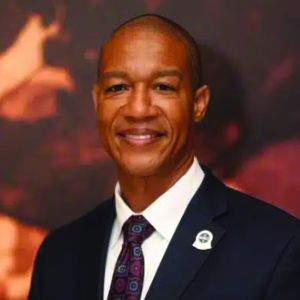
Colonel Jeffrey D. Glover currently serves as the Director of the Arizona Department of Public Safety. He was appointed by Governor Katie Hobbs on January 17, 2023, and unanimously confirmed by the Arizona State Senate in March 2023. With over 25 years of distinguished service in law enforcement, Colonel Glover is also the President of the National Organization of Black Law Enforcement Executives (NOBLE), a role in which he advocates for equity, accountability, and excellence in policing nationwide.
Colonel Glover began his law enforcement career with the Tempe Police Department, where he rose through the ranks and served in various roles, including as Field Training Officer, Narcotics and Crime Prevention Detective, Media Relations Sergeant, Patrol Lieutenant, and Commander of both the Criminal and Special Investigative Divisions.
After retiring from the Tempe PD in 2020, Colonel Glover returned later that year as Interim Chief of Police and was appointed permanent Chief in August 2021. His tenure was marked by a strong emphasis on community engagement, transparency, and reform.
In addition to his roles at Arizona DPS and NOBLE, Colonel Glover serves as a National Board Member for Mothers Against Drunk Driving (MADD), Co-Chair of the MADD Traffic Safety Committee, Commissioner on the Governor’s Commission for African American Affairs, and Board Member of the International Association of Chiefs of Police (IACP), serving on the crime prevention committee.
Colonel Glover holds a Bachelor of Science Degree in Education from Northern Arizona University and a Master’s in Public Administration from the University of Phoenix. He is a graduate of the Arizona Peace Officers and Standards Leadership Program (ALP #8), the FBI National Academy Command School (Session 265), and the Senior Management Institute for Policing (Session 86). He has also earned certificates in Diversity and Inclusion from Cornell University and Government Leadership from the University of Arizona’s Eller School.

Jeffrey Glover
Daniel Greene, Executive Director, National Association of Field Training Officers (NAFTO)
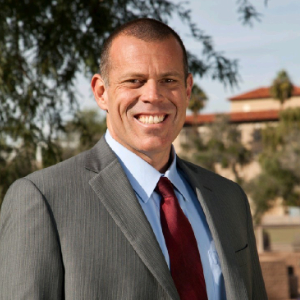
Daniel Greene serves as the Executive Director of the National Association of Field Training Officers (NAFTO), bringing over two decades of experience in law enforcement training, leadership, and curriculum development. Prior to his appointment as Executive Director, Greene served with distinction for six years on NAFTO’s National Executive Board and for eight years as Vice President of the Arizona Chapter.
A nationally recognized instructor and curriculum developer, Greene has designed and delivered training programs on a wide range of critical topics, including Standardized Evaluations, Adult Learning Theory, Leadership, Ethics and Officer Safety, and Field Training Unit Management. His instructional expertise spans introductory Field Training Schools, Advanced Field Training, and supervisory-level courses, equipping agencies with the tools to build effective, ethical, and resilient training programs.
Greene has presented courses to a diverse array of audiences across the United States, including local, county, and state law enforcement, US Army civilian police, sheriff’s departments, detention center personnel, and civilian staff. His dynamic and practical teaching style has made him a sought-after speaker and trainer in law enforcement education.
In recognition of his outstanding contributions to law enforcement instruction, Greene was honored with the International Law Enforcement Educators and Trainers Association (ILEETA) Instructor of the Year award in 2017.

Daniel Greene
Brian Grisham, Deputy Director, International Association of Directors of Law Enforcement Standards and Training (IADLEST)
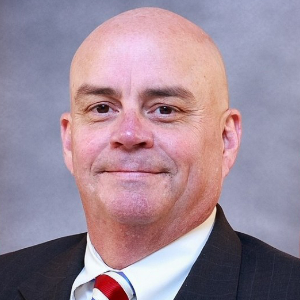
Brian Grisham, Esq. serves as the Deputy Director of the International Association of Directors of Law Enforcement Standards and Training (IADLEST), where he has been an active member since 1998. A respected leader in law enforcement training and standards, Grisham was elected President of IADLEST in 2016 and has served on the executive board for many years, contributing to national initiatives that shape the future of police training and professional development.
Grisham retired in January 2022 as the longest-serving Director of the Tennessee Law Enforcement Training Academy (TLETA) and Executive Secretary of the Tennessee Peace Officer Standards and Training (POST) Commission, roles he had held since April 2005. His tenure at TLETA began in 1997 as Assistant Director, where he played a pivotal role in both instructional and administrative leadership. He also served as an investigator and legal advisor to the POST commission, and earlier in his career, as Assistant to the Commissioner and Staff Attorney for the Tennessee Department of Safety. Additional law enforcement experience includes service with the Tennessee Department of Safety’s Criminal Investigations Division, the MTSU Police Department, and prior instructional roles at TLETA.
In addition to his professional roles, Grisham is deeply committed to officer wellness and victim advocacy. He is a member of the Tennessee Public Safety Network, providing critical incident stress debriefing and peer support, and serves on the Tennessee Voices for Victims Advisory Council. In 2011, he was appointed to the Governor’s Subcabinet for Public Safety, and in 2020, he played a key leadership role in the Governor’s Law Enforcement Reform Task Force.
A licensed attorney since 1989, Grisham earned his J.D. from the Nashville School of Law and holds a B.S. from Middle Tennessee State University. He holds training certifications in criminal law, firearms instruction, asset forfeiture, police management, and courtroom security. He is a graduate of both the Tennessee Government Executive Institute and the FBI National Law Institute.

Brian Grisham
John Hollway, Associate Dean and Senior Advisor, Quattrone Center for the Administration of Justice at the University of Pennsylvania Carey Law School

John F. Hollway is Associate Dean and Senior Advisor at the Quattrone Center for the Fair Administration of Justice at the University of Pennsylvania Law School. From 2013 to 2024, he served as the Center’s Executive Director, guiding its growth into a national leader in criminal justice reform.
A nationally recognized authority in root cause analysis and systems-based approaches to criminal justice, Hollway continues to lead the Center’s Sentinel Event Review Initiative. Through this work, he helps organizations turn adverse events into opportunities for learning, accountability, and continuous improvement. His approach bridges the gap between legal scholarship and operational practice, offering innovative strategies to reduce errors and enhance institutional performance across the justice system. He is a trusted consultant to criminal justice agencies, corporations, and policymakers, advising on issues related to performance measurement, error prevention, and organizational learning.
Hollway is the author of several influential publications, including Conviction Review Units: A National Perspective (2016), A Systems Approach to Preventing Errors in Criminal Justice (2014), and Killing Time: An 18-Year Odyssey from Death Row to Freedom (2010), which won the National Independent Book Award for Non-Fiction and was named one of the Chicago Sun-Times’ Best Books of the Year.
Hollway holds a Bachelor of Arts in Diplomatic History with a minor in East Asian Studies from the University of Pennsylvania, a Juris Doctor with honors from The George Washington University Law School, and a Master of Applied Positive Psychology (MAPP) with distinction from Penn.

John Hollway
Cynthia Lum, Professor of Criminology, Law, and Society and Director of the Center for Evidence-Based Crime Policy at George Mason University
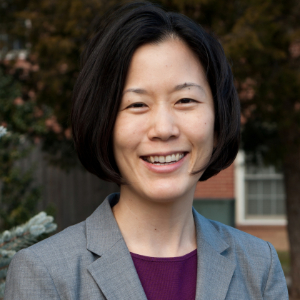
Dr. Cynthia Lum is a leading authority on evidence-based policing, an approach that champions the integration of research, evaluation, and scientific methods into law enforcement policymaking and practice. Her work has significantly shaped how police agencies adopt and institutionalize research-driven strategies to improve public safety and accountability.
Dr. Lum has conducted extensive research on patrol operations, crime prevention, police technology, investigations, and evidence-based crime policy. She has also developed practical tools and frameworks to help law enforcement agencies translate academic research into everyday operational practices. In recognition of her contributions to higher education and public service, she received the 2020 Outstanding Faculty Award from the Virginia State Council for Higher Education.
She is an elected Fellow of the American Society of Criminology and served on the Committee on Law and Justice (CLAJ) of the National Academies of Sciences (NAS). Her national service includes appointments to the NAS’s ad hoc committees on Proactive Policing and Evidence to Advance Reform in the Global Security and Justice Sectors. Dr. Lum is also a member of the Council on Criminal Justice's Policing Task Force, a Board Director for the National Policing Institute, and has held numerous leadership roles within the American Society of Criminology.
Dr. Lum is the founding editor of Translational Criminology Magazine and was the first North American Editor of Policing: A Journal of Policy and Practice (Oxford). She is a Fulbright alumna and co-founder of the International Summer School for Policing Scholarship, developed in collaboration with Nick Fyfe of the Scottish Institute for Policing Research and partners at Arizona State University.
Her recent book, Evidence-Based Policing: Translating Research Into Practice (Oxford University Press), co-authored with Christopher Koper, received the 2020 Outstanding Book Award from the ASC Division of Policing. Together, Professors Lum and Koper also served as the Editors-In-Chief of Criminology and Public Policy, the flagship policy journal of the American Society of Criminology.

Cynthia Lum
Susan Manheimer, San Bruno PD Interim Police Chief, National Law Enforcement Leader, and Strategic Advisor
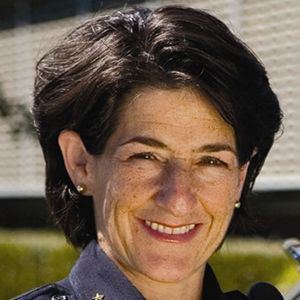
Chief Susan Manheimer recently retired after a distinguished 37-year career in law enforcement, during which she served in leadership roles across four diverse police agencies in the San Francisco Bay Area. Most recently, she was appointed as the Interim Chief of Police for the Oakland, San Leandro, and San Bruno Police Departments after concluding a 20-year tenure as Chief of Police for the San Mateo Police Department (SMPD). Before leading SMPD, she served almost 17 years with the San Francisco Police Department, leading crime and harm reduction strategies in the most challenging areas of the city.
Chief Manheimer is now a sought-after consultant, trainer, and subject matter expert in criminal justice strategies and community engagement, including crime reduction through public-private partnerships, and neighborhood and community improvement and development. She is a Strategic Site Liaison for the BJA’s Public Safety Partnerships, providing Training and Technical Assistance in executive leadership, strategic and crisis communications, and technology assessments. She is currently a lead instructor for the California POST “Succeeding as a Police Chief” course.
One of the most senior and respected police Chiefs in the country, Chief Manheimer has held leadership roles at the national, state, and local levels. She is the first woman to have served as President of the California Police Chiefs Association and the CA Governor’s Big Five Criminal Justice Advisory Board. A longtime member of the Police Executive Research Forum, an Executive Fellow at the National Policing Institute, and the Policing Futures Institute, she also served on the second cohort of the influential Executive Sessions on Policing at the Harvard Kennedy School of Government.

Susan Manheimer
Maureen "Mo" McGough, Co-Founder, The 30x30 Initiative Strategic Advisor and Founding Executive Director, Excellence in Policing and Public Safety (EPPS) Program at the University of South Carolina School of Law
 With a career spanning federal service, nonprofit leadership, research and academic partnerships, and international collaboration, McGough is widely recognized as one of the country’s foremost facilitators of collaborative reform in policing.
With a career spanning federal service, nonprofit leadership, research and academic partnerships, and international collaboration, McGough is widely recognized as one of the country’s foremost facilitators of collaborative reform in policing.
McGough began her career as an attorney with the U.S. Department of Justice, serving as a Special Assistant U.S. Attorney for the District of Columbia. She later joined the National Institute of Justice (NIJ), where she spent most of her federal tenure as a Senior Policy Advisor. At NIJ, McGough launched the Law Enforcement Advancing Data and Science (LEADS) Program, an initiative supporting research-minded law enforcement professionals across the country, and oversaw research portfolios on human trafficking investigations, wildlife trafficking, and counter-poaching in East Africa, and systems reform in criminal justice in the US. She also served as counsel on terrorism prevention for the Deputy Attorney General and coordinated federal AIDS relief efforts for the State Department through the US Embassy in Kigali, Rwanda.
After a decade in federal service, McGough transitioned to nonprofit leadership, serving as Director of National Programs at the National Policing Institute and later as Chief of Strategic Initiatives at the Policing Project at NYU School of Law. Her work there focused on developing and evaluating minimum standards for police departments in areas such as fairness, accountability, operational management, and public safety effectiveness. She then became the founding Executive Director of the Excellence in Policing and Public Safety (EPPS) Program at the University of South Carolina School of Law, where she now serves as a strategic advisor and lecturer.
McGough is also the co-founder of the 30x30 initiative, a national movement to improve the representation and experiences of women in policing. Since its inception, 30x30 has grown into a multi-million dollar effort with over 400 agency partners in the US and Canada, as well as growing country-level partnerships across the globe. Her work on gender equity in policing has been featured in The Washington Post, New York Times, CNN, USA Today, Slate, Vox, ABC News, and Cosmopolitan.
McGough earned her J.D. from the George Washington University School of Law.

Maureen McGough
Randy Means, Attorney, Randy Means & Associates, LLC
 Randy Means is a nationally recognized expert in police law, leadership, accountability, and organizational systems. Currently, he is the Principal of Randy Means & Associates, LLC, a Delaware-based training and consulting company. For over 30 years, Means was the law partner of Robert Thomas, who served as the police defense litigation manager in the landmark U.S. Supreme Court case Graham v. Connor – the case that established the “objective reasonableness” standard for evaluating claims of excessive force under the Fourth Amendment. Following Mr. Thomas’s retirement in 2020, the Thomas & Means Law Firm concluded its operations, and the Randy Means & Associates company was established.
Randy Means is a nationally recognized expert in police law, leadership, accountability, and organizational systems. Currently, he is the Principal of Randy Means & Associates, LLC, a Delaware-based training and consulting company. For over 30 years, Means was the law partner of Robert Thomas, who served as the police defense litigation manager in the landmark U.S. Supreme Court case Graham v. Connor – the case that established the “objective reasonableness” standard for evaluating claims of excessive force under the Fourth Amendment. Following Mr. Thomas’s retirement in 2020, the Thomas & Means Law Firm concluded its operations, and the Randy Means & Associates company was established.
Means has 46 years of full-time experience advising law enforcement officers and agencies across the United States. He began this career as a lead legal trainer and later served as department head at a state law enforcement training center. He went on to spend almost ten years as in-house counsel for a major city police department, where he also held positions on the command staff and executive staff. Over the course of his career, Means has provided legal and risk management services to hundreds of law enforcement agencies, including many of the nation’s largest and most respected, helping them navigate complex legal challenges and implement sustainable professional improvements.
Means has now trained more than half a million law enforcement professionals, including tens of thousands of police leaders, and has worked extensively with risk and insurance management pools, police academies, and professional associations across America. He is the author of two books and over 100 published articles on police law, risk management, and leadership. His work and writing have also appeared in practitioner outlets such as Police Chief and Law & Order magazines and in national media such as 60 Minutes and the Wall Street Journal. He has appeared on the Law Enforcement Training Network and the FBI Training Network. Means has also spoken at many major conferences, including the International Association of Chiefs of Police (IACP), the FBI National Academy Association, and the Public Risk and Insurance Management Association, and is past head of the Legal Officers Section of the IACP– the national association of police attorneys.
In his early professional life, after college and active-duty service as a military officer, Means obtained a juris doctor degree from the highly-regarded University of North Carolina School of Law. His current involvements include serving as the constitutional policing trainer for the Los Angeles Sheriff’s Department in its ongoing work as part of a settlement agreement with the U.S. Department of Justice. Means is also the subject matter expert for the International Association of Directors of Law Enforcement Standards and Training (IADLEST) in a USDOJ/BJA grant-funded, multi-year project to improve the quality of constitutional policing training nationwide.

Randy Means
Paul Noel, Chief of Police, Knoxville Police Department
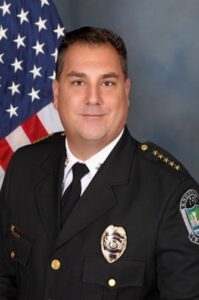 Paul Noel was sworn in as the 27th Chief of Police for the Knoxville Police Department (KPD) on June 13, 2022. A seasoned law enforcement leader, Chief Noel is known for his steadfast commitment to community-focused, problem-solving policing, an approach that fosters public trust, reduces crime, promotes accountability, and cultivates a motivated and professional workforce.
Paul Noel was sworn in as the 27th Chief of Police for the Knoxville Police Department (KPD) on June 13, 2022. A seasoned law enforcement leader, Chief Noel is known for his steadfast commitment to community-focused, problem-solving policing, an approach that fosters public trust, reduces crime, promotes accountability, and cultivates a motivated and professional workforce.
Before joining KPD, Chief Noel served for over 25 years with the New Orleans Police Department (NOPD), rising through the ranks to become Deputy Superintendent. In that role, he oversaw the department’s field operations, investigations, and support bureaus.
A nationally recognized advocate for police reform, Chief Noel played a key role in developing the Ethical Policing Is Courageous (EPIC) program and serves on the Board of Advisors for Georgetown University’s Active Bystandership for Law Enforcement (ABLE) Project. In recognition of his leadership and innovation, he received the Police Executive Research Forum’s prestigious Gary P. Hayes Award in 2021.
Chief Noel holds both a bachelor’s and master’s degree in criminal justice from Loyola University. He is a graduate of the FBI National Academy, the Major Cities Chiefs Association’s Police Executive Leadership Institute, and the Senior Management Institute for Police (SMIP) hosted by the Police Executive Research Forum (PERF).

Paul Noel
Aqeela Sherrills, Co-Founder, Community-Based Public Safety (CBPS) Collective

Aqeela Sherrills is a spirit-centered organizer, activist, and nationally recognized expert in community-based public safety and victim services. With over thirty years of experience advancing healing and safety in marginalized communities, his work centers on empowering communities to take ownership of public safety, reduce violence, and foster collective healing from trauma.
Aqeela currently serves as the Co-Founder and Executive Director of the Community-Based Public Safety (CBPS) Collective, a national organization supporting local efforts to build sustainable community-led safety strategies. This work builds on his leadership of the Newark Community Street Team (NCST), a violence reduction initiative he co-created at the request of Newark (NJ) Mayor Ras Baraka in 2014. Under his leadership, Newark’s homicide rate dropped by more than 50 percent between 2015 and 2019.
Aqeela’s journey began in Watts, Los Angeles, where he was once affiliated with the Grape Street Crips. At 19, he co-founded the Amer-I-Can Program, Inc. with NFL Hall of Famer Jim Brown, helping individuals overcome the behaviors that led to violence and incarceration. He was a key architect of the historic 1992 Watts truce between the Crips and Bloods and later co-founded the Community Self-Determination Institute to address the root causes of violence, including community trauma and systemic inequity.
In 2007, following the tragic loss of his son, Aqeela launched The Reverence Project, a healing justice initiative that brings together activists, artists, and healers to transform urban “war zones” into spaces of compassion, forgiveness, and truth. His work has since expanded nationally through his leadership of the Crime Survivors for Safety and Justice (CSSJ) Network. Co-launched with Californians for Safety, the Survivor Network now includes over 300,000 members, amplifying the voices of those most affected by violence.
Aqeela has served as the Director of the Community Violence Intervention Collaborative and Chairman of the Board of the Newark Community Street Team. He also serves on the boards of the Alliance for Safety and Justice and the Victoria Foundation.
Through every chapter of his life, Aqeela Sherrills has remained a powerful voice for healing, justice, and transformation, helping communities across the country reimagine what true safety looks like—from the ground up.

Aqeela Sherrills
John Paul Smith, Executive Assistant to the Secretary-Treasurer, AFL-CIO

John Paul (JP) Smith is the Executive Assistant and Chief of Staff to the AFL-CIO Secretary-Treasurer, where he leads the coordination of the federation's administrative departments and financial operations. A third-generation trade unionist, Smith brings nearly two decades of experience across multiple sectors of the economy, grounded in a deep commitment to worker advocacy and organizational leadership.
Smith began his labor journey with the United Steelworkers (USW) at Local 7-669 in Metropolis, IL, where he worked for over twelve years as a nuclear process operator and local union officer. He later became the first International Coordinator of the USW’s Next Generation program, a pioneering initiative to engage and empower young workers across North America. Before joining the AFL-CIO, Smith directed government affairs and policy for the USW in the transportation, chemical, refining, and nuclear sectors. His advocacy extended to Capitol Hill, where he championed legislation and regulatory reforms to protect workers and strengthen industrial communities.
Smith is also a former police officer and a nationally recognized labor leader on police reform. He has played a central role in shaping the AFL-CIO's efforts to promote responsible policing and public safety accountability. He was a primary author of The AFL-CIO's Public Safety Blueprint for Change, a landmark publication guiding the labor movement’s approach to law enforcement reform. Through its affiliated unions, the AFL-CIO represents approximately 400,000 law enforcement officers across the United States.

John Paul Smith
Jonathan M. Smith, Chief of the Civil Rights Division, Maryland Office of the Attorney General

Jonathan M. Smith was appointed in 2024 by Maryland Attorney General Anthony G. Brown as the inaugural Chief of the newly established Civil Rights Division within the Maryland Office of the Attorney General. In this role, Smith leads the state’s efforts to enforce federal and state civil rights laws, focusing on combating discrimination and advancing equity and justice for all Marylanders.
Prior to this appointment, Smith served as Senior Special Counsel for Criminal Legal System Reform at the Washington Lawyers’ Committee for Civil Rights and Urban Affairs, where he previously held the role of Executive Director for seven years. His work there focused on addressing racial and economic injustice in areas such as housing, employment, education, disability rights, police misconduct, and the rights of incarcerated individuals.
Smith’s distinguished career includes serving as Chief of the Special Litigation Section in the Civil Rights Division of the U.S. Department of Justice from 2010 to 2015. In that role, he led efforts to investigate and address widespread civil rights violations in policing and corrections. One of the most notable cases under his leadership was the civil investigation into the Ferguson, Missouri Police Department following the fatal shooting of Michael Brown.
Smith has also held leadership roles at the Legal Aid Society of the District of Columbia, the Public Justice Center in Baltimore, Maryland, and the D.C. Prisoners’ Legal Services Project, where he engaged in impact litigation, legislative advocacy, and institutional reform.
Smith holds a Juris Doctor from the Antioch School of Law and a Bachelor of Science degree in Philosophy from the University of Maine.

Jonathan M. Smith
Empowering Law Enforcement Excellence
A Beacon of Guidance at the National Law Enforcement Knowledge Lab
Explore targeted areas such as crime and violence reduction, use of force accountability and early intervention, and recruitment and retention. Elevate your agency's performance with our guidance and support.
